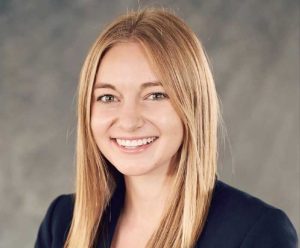
Alexandra Borza ’21, a senior nutrition science major on a pre-dental track, is a firm believer that food is the best medicine. She loves to cook, incorporating a variety of foods and spices to keep herself healthy. For someone who has always been interested in how food heals the body, the NSD 417 Integrated Food and Nutrition Therapy course was a perfect fit.In this course, students learn what is in food that gives it the potential to heal, and the types of foods that are essential for optimal health. They are equipped with skills to use food from a personalized, biological, and sociological perspective so that recommendations are individualized.
“The Integrated Food and Nutrition Therapy course takes a systems biology approach, exploring interactions between the foods we eat, the environment we live in, and our individual behaviors,” says Sudha Raj, Ph.D. “Food is a key determining factor in health and disease. This is of interest to dietitians and others interested in the health professions because it presents evidence-based information to make personalized, real-life food-based recommendations for their patients,” says Professor Raj.
With Borza’s plan to enter the medical field, and her interest in the healing properties food, she knew nutrition science was her path to dental school. “As a student pursuing dentistry and going into the health care field, I feel nutrition education is scarce. This is one of the reasons I chose to major in nutrition science,” says Borza.
One of her favorite topics was functional foods. “For example, I love to eat ginger. I knew it was healthy, but what I didn’t know was that ginger is an anti-inflammatory and lowers cholesterol.”
The graduate version of this course, NSD 617, is a required course in Falk College’s new Certificate of Advanced Study in Integrative and Functional Nutrition, which trains nutrition and other allied health professionals in personalized approaches to health and wellness.
In some ways, the relationship between food and health isn’t new. “The Integrated Food and Nutrition Therapy course reinforced that food does heal and cultures have been using food medicine for centuries,” says Borza. But there is still much opportunity to better integrate nutrition and medicine for improved health outcomes. “From a societal perspective, the information presented in this course is very critical in disease prevention and health promotion initiatives,” says Professor Raj.
Integrative and functional nutrition is one area where this opportunity is being realized. Nutrition practice as part of integrative and functional healthcare is expanding across various settings in clinical health and community and public health serving diverse populations, which is creating new career opportunities for both nutrition and medical professionals.
After graduation, Borza is headed to Missouri to complete her graduate studies at A.T. Still University’s Missouri School of Dentistry and Oral Health.
